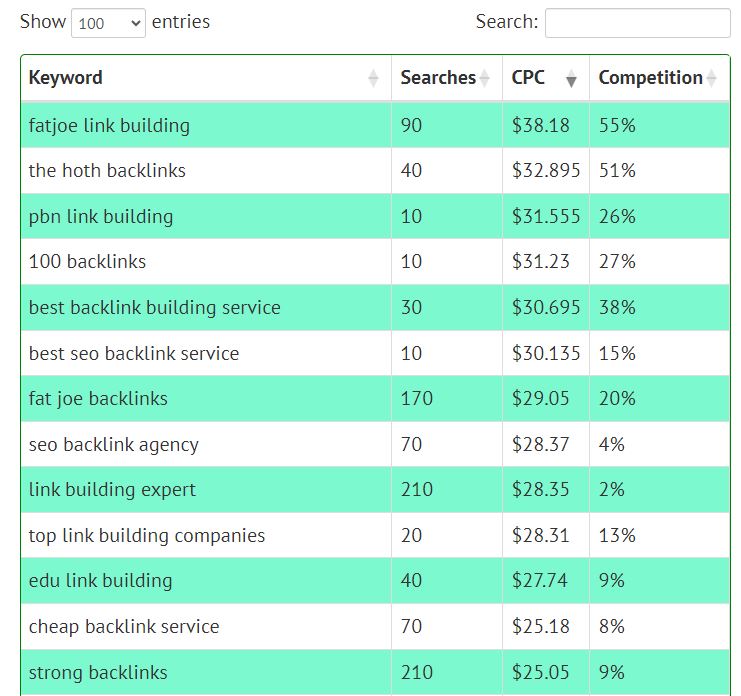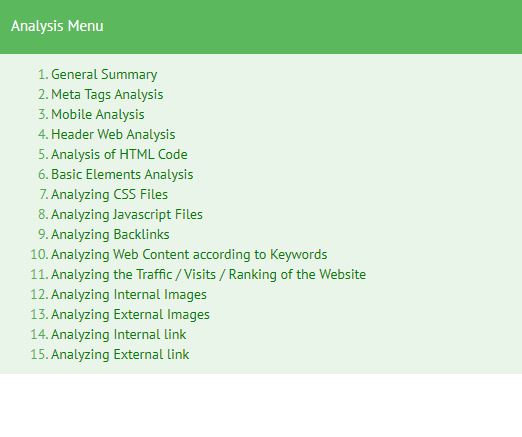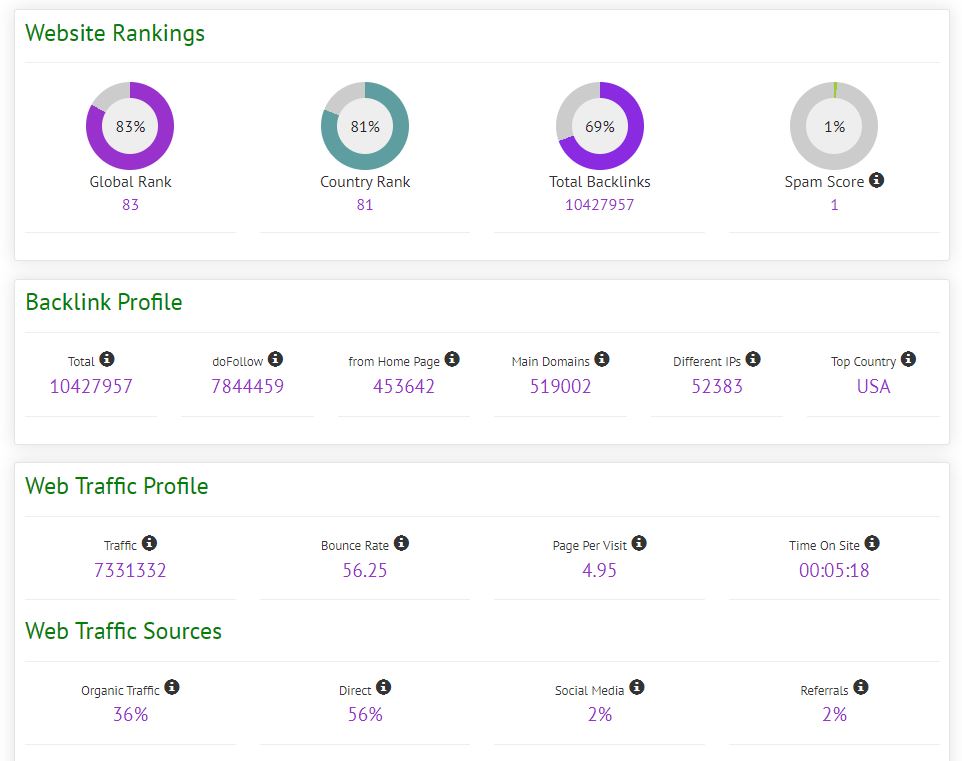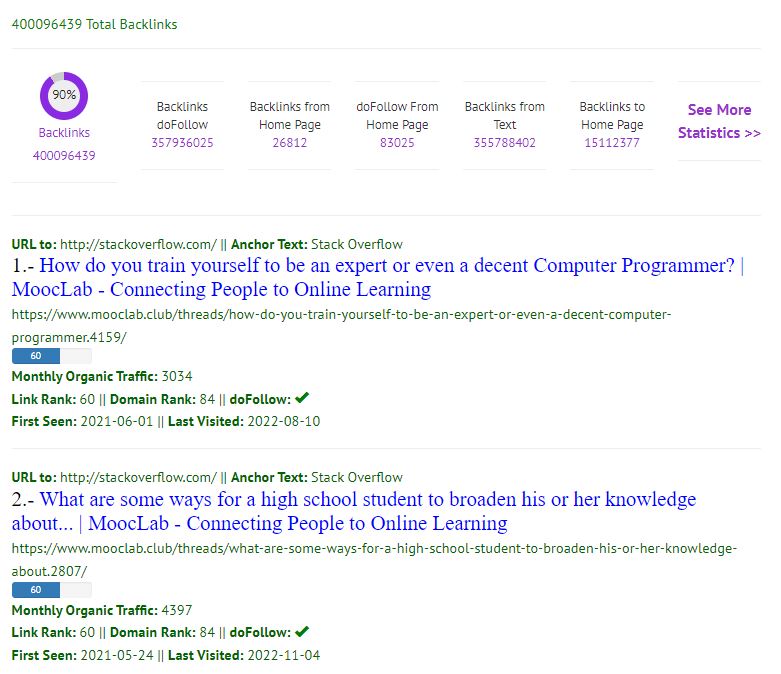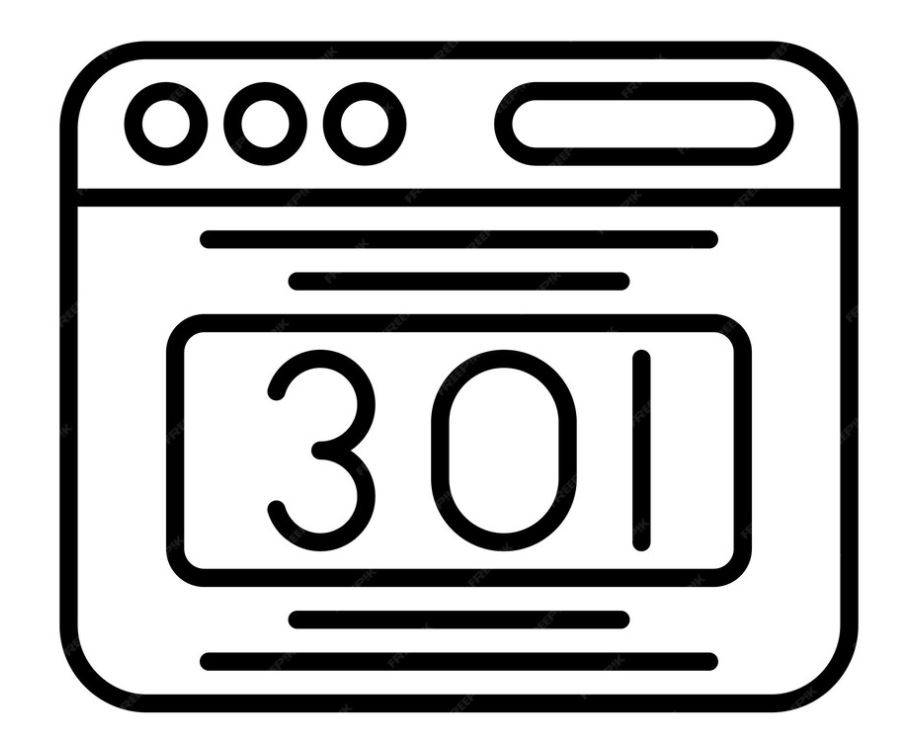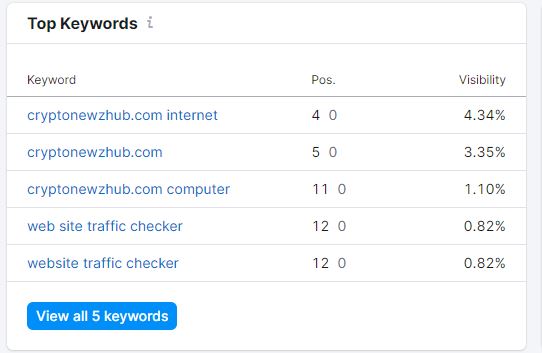
Keyword competition is a measure of how difficult it is to rank for a particular keyword in Google's organic search results. This depends on factors such as the popularity of the keyword, the authority and relevance of the competing sites, the number and quality of their backlinks, and the quality and optimization of the content they provide.
Why is keyword competition important?
Because it can have a decisive impact on your SEO success. If you target keywords that are too competitive, it will be difficult for you to rank and generate traffic. If you target keywords that are too simple, you will get traffic that is not relevant or valuable. You need to find the sweet spot: keywords that have enough search volume, intent and profitability but not too much competition.
Use a Keyword Research Tool
The first and most obvious tip is to use a keyword research tool to generate keyword ideas and view their competitive metrics. There are many tools out there, as Lookkle, it has a free keyword generator that shows you hundreds of keyword suggestions along with their monthly search volume keyword difficulty cost per click and SERP features.
Keyword difficulty is a value that indicates how difficult it is to rank for a keyword based on the authority and quality of the highest-ranking pages. The higher the score, the more difficult the keyword is. Lookkle uses a 0 to 100 scale.
Here is an example of what Lookkle looks like:
This tool allows you to find keyword ideas that fit your niche audience and goals and filter them by keyword difficulty, search volume, and other criteria. You can also export the data and save your keyword lists for later use.
Look at SERP features
SERP features are elements that Google displays on the search results page, such as featured snippets, People Also Ask video carousels, images, local packs and more. You can influence the click-through rate and traffic potential of your keywords, as well as the level of competition.
For example, if a keyword triggers a featured snippet, it means that Google believes that the query can be answered succinctly and clearly, and the user may not have to click on another result. This can reduce organic traffic for the other pages ranking for that keyword and make it harder for you to outperform the featured snippet.
On the other hand, if a keyword triggers a video carousel, it means that Google thinks the search query is better answered with a video and that the user may prefer watching a video to reading text. This can increase organic traffic to the pages with a video and make it easier for you to rank with a video.
You can also use a tool like SEMrush or Mangools to view the SERP snapshots for each keyword and see how the competitor sites look on the search results page.
Analyze the content quality and optimization of competitor sites
Content quality and optimization are crucial factors for SEO as they influence the relevance, authority and user experience of your pages. You need to create content that is better than your competitors in terms of both quality and optimization.
Quality means your content is original, informative, engaging and useful to your audience. It answers their questions, solves their problems and provides added value. Optimization means that your content is well-structured, easy to read and follows the best SEO practices. It includes your target keyword and related terms, uses headings, images and other elements, and has a clear title meta description and URL.
You can use a tool like Ahrefs or Ubersuggest to see the content quality and optimization of the top-ranking pages for each keyword.
You can also use a tool like Lookkle, Yoast SEO or Rank Math to check the SEO score and readability score of your own content and get suggestions for improving it.
Here is an example of what Lookkle looks like:
Check the domain authority and backlink profile of competitor sites
Check the domain authority and backlink profile of the competing pages that rank for your target keywords.
Domain authority is a metric that indicates how trustworthy and authoritative a website is based on the quality and quantity of its backlinks. Backlinks are links from other websites pointing to your website, and they are one of the most important ranking factors for SEO.
The higher the domain authority and backlink profile of competing sites, the harder it will be for you to rank for the same keywords. You need to build your own domain authority and backlink profile and get links from relevant and authoritative websites in your niche.
You can use a tool like "lookkle web ranking checker" to view the domain authority and backlink profile of the top ranking pages for each keyword. Furthermore, you can also use a tool like Backlink Checker to see the backlinks and domains pointing to your own website and see how they affect your domain authority.
Here is an example of lookkle web ranking checker:
And here is an example of what a backlink checker looks like:
These tools allow you to find your competitors' backlink sources and strategies and replicate or improve them for your own website.
Use the skyscraper technique
Another tip is to use the skyscraper technique to create content that outperforms your competitors.
The Skyscraper Technique is a content marketing strategy that involves finding the best content in your niche, improving it and promoting it to the right people. It was popularized by Brian Dean, the founder of Backlinko and is one of my favorite ways to create high-quality content and get backlinks.
The skyscraper technique consists of three steps:
- Find the best content in your niche. You can use a tool like "Lookkle Organic Traffic Checker" to find the most popular and linked content for your target keywords and analyze what makes them successful.
You can improve the existing content by adding more value, depth, freshness, design, or any other aspect that makes it better than the original. Furthermore, you can also use a tool like Grammarly or Hemingway to check the grammar and readability of your content and make it error-free. - Get the word out to the right people. You can contact the sites that linked to the original content and let them know that you have a better version that they might want to link to.
- You can also use a tool like Hunter to find the email addresses of website owners or editors and send them a personalized and compelling email.
Tips on SEO and Online Business
Next Articles
Previous Articles
